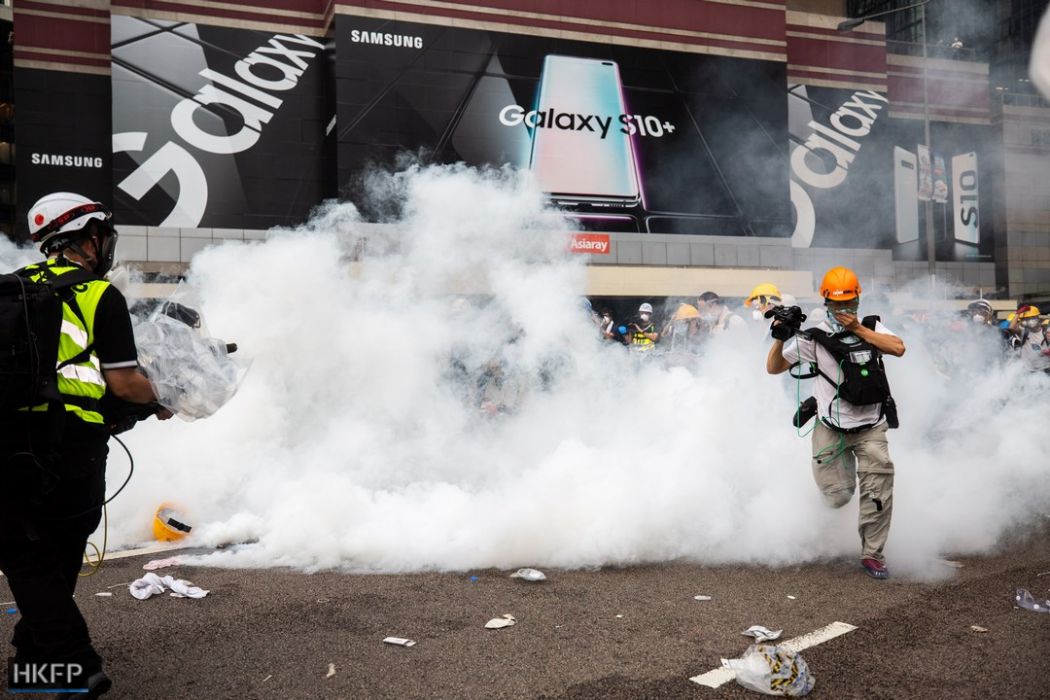Some frontline reporters felt ill after being exposed to tear gas at recent protests, according to a new study conducted by doctors.
Whampoa District Councillor Kwong Po-yin, who also works as a public hospital doctor, said at a Friday press conference her team interviewed more than 170 reporters last week about their experiences with tear gas. After police used tear gas on July 28 in Sheung Wan, 96.2 per cent of respondents said they had difficulty breathing, persistent coughing or coughed up blood.

Additionally, 72.6 per cent said they developed skin conditions such as rashes, redness or itching. 53.8 per cent said their eyes tearing or swelling, and 40.6 per cent said they had gastrointestinal symptoms such as diarrhoea or vomiting.
‘Threat to public health’
Reporters surveyed showed worse symptoms after the protests on July 28 – including second-degree burns – compared with those on June 12, said researcher Wong Cheuk-pang. This may be related to the number of tear gas canisters fired, the density of the gas and environmental factors, he added.
“No matter what the reason is [for worsening symptoms], the research figures show the widespread use of tear gas by police poses a real threat to public health,” Wong said.

The study was conducted anonymously via a voluntary online survey, and Kwong said her team chose to study reporters so that their research subjects would be better protected.
Police said that around 1,000 tear gas canisters were used between June 9 and August 4, and 800 rounds on Monday alone during a city-wide strike in no less than eight districts.

Wong said that tear gas could have long term effects, citing a case where a person who was trapped outside CITIC Tower on June 12 was diagnosed with pneumonia and bronchitis. The patient displayed symptoms until late July, nearly a month and a half later.
Hong Kong police have defended their actions by saying that tear gas only produces short-term effects, but Wong expressed doubt over this based on the cases observed.
Separately, a science lecturer at the University of Hong Kong said it was possible for tear gas to release toxic chemicals if it is used past its expiry date.
HKU Lecturer Karen Mak told RTHK that tear gas can be kept for around three to five years, but may decompose over time. Since tear gas canisters are activated by heat, the heating process may then produce toxic gases such as phosgene and cyanide.

Photos have circulated online purporting to show tear gas canisters used past their expiry date, but police have so far declined to comment on whether expired tear gas was used.
There is also academic literature on the harm posed by prolonged exposure to tear gas, Mak added.
